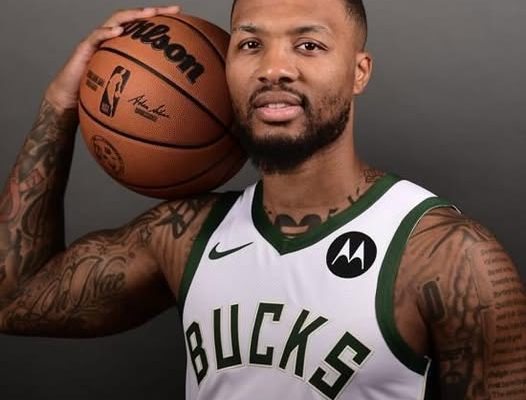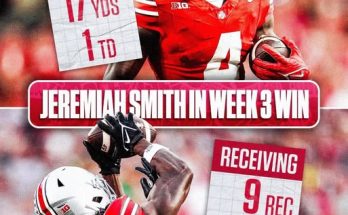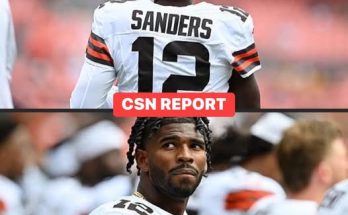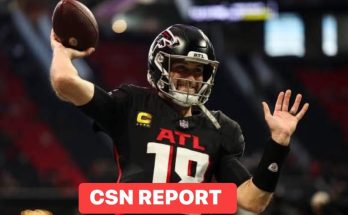Social media has always been a powerful mirror reflecting how deeply sports intersect with culture, family, and personal narratives. But in the case of Damian Lillard and the Milwaukee Bucks, that mirror cracked, flickered, and caught fire the moment the All-NBA guard shared a surprisingly vulnerable and personal story—one that centered not around his game on the court, but around what his children said off it. In a world where stats, trades, and playoff seeding dominate discourse, Lillard’s words triggered a wave of reactions that transcended analytics. They opened up a conversation that was emotional, cultural, and more than anything, raw.
The quote that started it all was simple but striking. Speaking to reporters after a Bucks shootaround, Lillard casually mentioned, “My kids told me the other day they miss Portland… they don’t really like it here the same.” The internet took that one phrase—”they don’t really like it here”—and spun it into a thunderstorm of speculation, interpretation, outrage, and empathy. Was Lillard unhappy in Milwaukee? Was he planting the seeds for an exit? Was this the first crack in the foundation of a roster that was supposed to be built to contend for a title? Or was this just a man speaking honestly about the challenges of uprooting a young family?
From that moment, social media turned into a battlefield. Bucks fans felt blindsided. Many had welcomed Lillard with open arms after the blockbuster trade that brought him to Milwaukee from Portland in exchange for Jrue Holiday, Grayson Allen, and several picks. The narrative had been that Lillard would team up with Giannis Antetokounmpo to form the most potent duo in the Eastern Conference. So far, the reality has been mixed. While flashes of greatness have surfaced, chemistry issues, inconsistent defense, and a midseason coaching change have left the Bucks in a state of flux. But none of that was as jarring to fans as hearing that Lillard’s own children were struggling with the move.
Within minutes, posts flooded X, formerly known as Twitter. Some fans immediately leapt to defend Lillard, arguing that moving cross-country with a young family is never easy, and that it was heartening to see a superstar athlete speak candidly about the human side of such transitions. Others weren’t so understanding. One user wrote, “So now Dame’s kids run the team? We gave up our future and Jrue’s defense for someone whose heart might still be in Portland?” Another added, “This is why we should’ve thought twice. Culture matters. If he doesn’t want to be here long term, this whole thing’s a bust.”
Even non-Bucks fans weighed in, with Blazers fans taking the opportunity to poke fun. “Just admit you miss Rip City, Dame,” one tweet read, paired with a gif of Lillard’s game-winning shot against the Thunder in 2019. “Your kids just said what you won’t.” Others posted images of Lillard’s Blazers jersey with captions like, “Come home. The clock’s still ticking.”
What was fascinating, though, was how quickly the conversation went beyond just Lillard and the Bucks. Sports fans began debating the larger issue of how little the NBA world acknowledges the toll that trades and relocations take on players’ families. For all the talk about loyalty and chemistry, the human element often gets shoved aside in favor of cap space, win shares, and three-point percentages.
It didn’t take long for former players to chime in. Dwyane Wade reposted the clip on Instagram and added the comment, “A lot of y’all don’t know how tough this part of the game is. Salute to @damianlillard for being real.” JJ Redick, now a prominent analyst, dedicated a full segment on his podcast to the moment. “This wasn’t just about Dame,” Redick said. “This was about how the league treats players like chess pieces, and then we get shocked when they open up about the emotional toll.”
The Bucks organization tried to steer the narrative back on track. Coach Doc Rivers addressed the media saying, “Damian is a competitor, a leader, and a family man. There’s nothing negative about what he said. It’s honest. It’s real. And we support him 100 percent.” Giannis also stepped in to show support for his teammate. “Everyone needs time to adjust,” he said during postgame comments. “Dame’s been great for us. I got kids too. I understand what he’s saying. That doesn’t change our goals or his commitment.”
Despite those attempts to diffuse the situation, the media frenzy continued. National shows ran with it, speculating whether this was a sign that the Bucks would be forced to consider moving Lillard again in the offseason if things went south. Some talking heads suggested that Miami, which had failed to land Lillard during the previous summer, might rekindle trade talks. Others suggested that Lillard could ask to be bought out if things worsened, invoking comparisons to late-career Carmelo Anthony or Russell Westbrook.
Lillard himself, always thoughtful and never shy about speaking directly to fans, took to Instagram Live to clarify. “I’m not unhappy,” he said plainly. “But yeah, I miss Portland. My kids miss their school, their friends. That’s real life. Doesn’t mean I’m quitting on Milwaukee. Doesn’t mean I don’t want to win here. Just means I’m human, man. I’m a dad before I’m a point guard.”
That seemed to quell some of the fire, but by then the conversation had already morphed into something larger—into a referendum on what athletes owe to their teams versus what teams owe to their athletes. Some voices pointed out how often fans demand complete loyalty from players, even when franchises show none in return. Lillard’s situation stood in stark contrast to the often icy dynamics of team-player relationships in today’s NBA.
Then came the memes. Social media always finds a way to laugh through the tension, and soon jokes flooded timelines. Pictures of Milwaukee in winter with captions like, “When your kid asks why the playground is buried in snow,” or fake texts from Damian’s kids saying, “We miss Voodoo Doughnut,” became viral moments. Others joked about Lillard’s son writing “Free Dame” in crayon on the family fridge.
Lost in all the noise, though, was the fact that Lillard had still been giving everything on the court. While he hadn’t been quite the same as his peak Portland years, he was still averaging over 23 points and six assists per game, often stepping up in big moments. Even amid personal and family adjustment issues, he remained focused on winning.
But the storyline wouldn’t die. Every missed shot, every fourth-quarter turnover, every Bucks loss started to be viewed through the lens of Lillard’s comments. It became a symbol, unfair as it may be, of a player possibly out of sync with his environment. Never mind that Khris Middleton had been in and out of the lineup or that Brook Lopez had shown signs of decline. It was Lillard’s kids—and his honesty—that bore the brunt of the narrative.
Some wondered if the trade itself had been doomed from the beginning. Milwaukee had mortgaged a significant piece of its core to bring in Lillard, and while his arrival had undeniable offensive benefits, the departure of Jrue Holiday was felt deeply, particularly on defense and in locker room chemistry. A team that had prided itself on cohesion now seemed to be struggling to redefine itself.
Still, others reminded everyone that these things take time. Kevin Garnett famously took years before finally winning a title in Boston. LeBron’s first year in Miami ended in failure before the Heat figured it out. Even the mighty Warriors had their bumps in integrating Kevin Durant. Sometimes greatness needs patience, and sometimes fans aren’t willing to give it.
In Milwaukee, fans are at a crossroads. The city has a proud sports culture, one that rallies fiercely behind its stars. From Giannis to Aaron Rodgers to Christian Yelich, the connection between player and community is vital. Lillard’s recent moment of honesty may have complicated that connection—but it also made it more authentic.
As the Bucks gear up for the final stretch of the season, Lillard’s every move will continue to be dissected. But perhaps what matters more is what this saga reveals about modern fandom, loyalty, and empathy. Damian Lillard didn’t say he hated Milwaukee. He didn’t demand a trade. He didn’t check out mentally or slack off. He said his kids miss their old home. That’s not a controversy—that’s life.
Yet in a world that thrives on hot takes, that line between life and narrative is often blurred. Whether Lillard ultimately thrives in Milwaukee or not, the bigger takeaway might be that we, as fans, should stop pretending our sports heroes live in a vacuum. They don’t. They move, they feel, and yes, sometimes their kids miss home. And that, if anything, makes them more worth rooting for.



